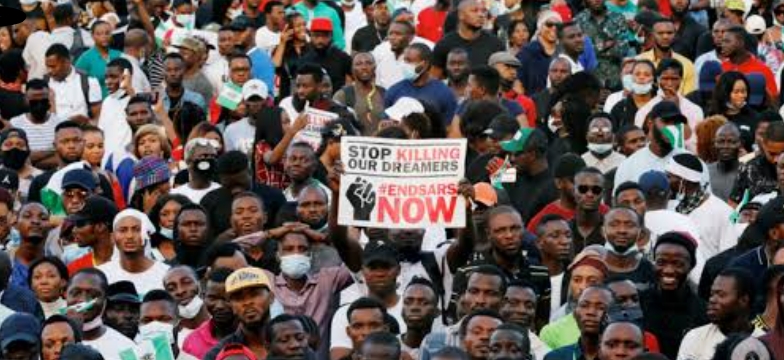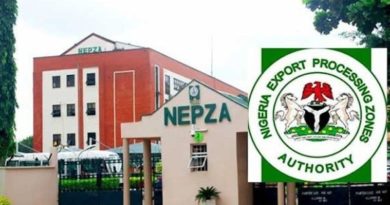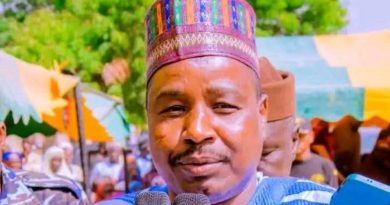ENDSARS: ECOWAS Court finds FGN guilty of Human Rights Abuses
…. Orders N10M EACH as compensation for the applicants
Oru Leonard
The Economic Community of West African States (ECOWAS), Court of Justice has delivered a landmark verdict finding the Federal Government of Nigeria guilty of human rights abuses in its response to the #EndSARS protest, particularly its disproportionate use of force at the Lekki Toll Gate in Lagos on October 20, 2020. The ruling, issued on July 10, 2024, mandates the Nigerian government to pay a total of N10 million in compensation to each victim named in the suit.
The case, brought before the ECOWAS Court by a coalition of human rights activists and organisations, alleged severe violations of fundamental human rights by Nigerian security forces. Amnesty International also submitted an Amicus Brief, which was declared admissible by the Court. After thoroughly examining evidence and testimonies, the Court concluded that the Nigerian government’s actions breached several international human rights standards, including Articles 1, 5, 6, 9, 10, and 11 of the African Charter on Human and Peoples’ Rights.
Key Findings:
The Court found credible evidence of disproportionate use of force and violations of the right to liberty and security, assembly, free speech, and dignity. It stated that the use of force was not necessary and contravened the Respondent State’s obligations under the African Charter.
The Court agreed that the applicants had suffered torture at the hands of the Nigerian government. The Court found that the situation at the Lekki tollgate, where live rounds were shot into the crowd of unarmed protesters, created a situation of fear, and the Nigerian government did not present evidence refuting those allegations.
The Court further held that the Respondent State failed to allow and afford the Applicants their rights to freedom of expression, assembly, and association, therefore violating the Applicants’ rights under Articles 9, 10 and 11 of the African Charter.
The government’s actions were deemed inconsistent with Nigeria’s obligations under the ECOWAS Revised Treaty and the African Charter on Human and Peoples’ Rights.
The Court held that the quasi-mechanism set up by the Respondent State to investigate the allegations of abuse at the Lekki toll gate lacked independence and was questionable. The State, therefore, failed in its duty of effective remedy under Article 1 of the African Charter.
Compensation and Orders:
The Court ordered the Federal Government of Nigeria to pay N10 million each in compensation to the Applicants.
Additionally, the Nigerian government has been mandated to conduct investigations into the human rights abuses that occurred with a view to implementing the outcomes of said investigations. The Court has ordered the government to report to the Court in six months with an update on the compensation and progress of the inquiry.
Reacting to the judgment, Bolaji Gabari (lead counsel for the Applicants) stated, “This ruling is a significant victory for the #EndSARS movement, an acknowledgement that citizens’ rights were violated and abuses occurred at Lekki Toll Gate. We urge the Nigerian government to comply fully with the Court’s orders and take immediate steps to address the systemic issues identified in the judgment.”
In her reflections, Mojirayo Ogunlana, a counsel to the Applicants, said that the journey to this victory began on the 10th of December 2021. She recalled that the Nigerian Government, as Respondents in the case, failed to show up to put in a Defence until 2023, when, in its address, claimed, amongst others, that the EndSARS peaceful protest was unlawful and perpetuated by hoodlums. She expressed joy at the closure occasioned for the Applicants and Nigerians who bore witness to the abuse and violation on the 20th of October.
Also reacting to the judgment, Nelson Olanipekun, Executive Director at Gavel, coordinating organisation for the coalition, said, “The landmark ruling by the ECOWAS Court in favour of EndSARS victims is a powerful affirmation of justice and a significant step towards healing and accountability for the Lekki Tollgate tragedy.”
Obianuju Catherine Udeh (DJ Switch), one of the applicants, said this of the ruling, “Not once did I waver in my shared experience of the traumatic events of the 20th of October, 2020 but to sit in court and listen to the esteemed judges, based on the facts give a ruling in our favour not only reaffirms what I know and experienced but makes this one of the best days of my life since the horrific event. This judgement becomes a glimmer of hope that we can indeed head in the right direction in service of the truth and justice.”
The ECOWAS Court’s decision underscores the importance of regional judicial mechanisms in holding governments accountable and protecting citizens’ rights. It also highlights the critical role of civil society in advocating for justice and human dignity.
For further information, please contact Chioma Agwuegbo at 08038458900 or chioma at chiomachuka dot com.
Background.
On 20 October 2020, peaceful and unarmed protesters were fired at by Nigerian Security agents at the Lekki Toll Gate, Lagos state, Nigeria. This brought to a violent end the #ENDSARS protests that, beginning on the 3rd of October in Delta State, had been held across the country, calling for justice against police brutality in Nigeria. In December 2021, three victims brought a case before the ECOWAS Court, Obianuju Catherine & 2 Others v. Federal Republic of Nigeria (ECW/CCJ/APP/72/2021), to justice for themselves and those impacted by the violations.
About ECOWAS Court of Justice
The ECOWAS Court of Justice is a principal legal institution of the Economic Community of West African States. It serves as the judicial organ that interprets and enforces the provisions of the ECOWAS Revised Treaty, adjudicates disputes related to the interpretation and application of Community laws, and ensures the protection of human rights across the region.




